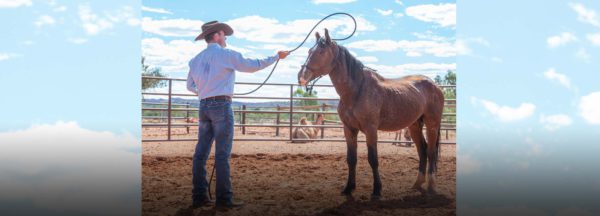Clinton: Keep It Simple

Horses are very smart, but they are simple creatures. I put horses mentally in the same age group as 4- to 6-year-old kids. Kids in this age group are very smart, they catch on quickly, but they are very simple. For example, people ask me all the time when teaching a colt the Cruising Lesson: “Shouldn’t I be worried he’s on the wrong lead? That he has his head in the air? Etc.” No, I’m not. The colt has only had three rides. He’s been loping around in the pasture on the wrong lead all his life; cantering around on a loose rein for three days isn’t going to hurt him. First, he has to learn how to carry a rider at the canter, and then we can work our way up to leads. Don’t get hung up on the details. Keep it basic. When you keep it simple, colts progress very quickly.
You can’t teach a colt 15 lessons all in the same day. You don’t teach a kid the alphabet, how to write, how to spell his name, write a sentence and read all in the same session. First, you teach him the alphabet, and when he’s good at that, then you move on. When you take your time and build on each lesson, kids catch on quickly. But if you confuse them by throwing too much information at them at one time, they shut down on you. Your colt is the same way. You have to break the information down for him so that he understands what you’re asking him to do. – Clinton
Clinton explains how he keeps lessons simple for young horses in his Colt Starting Kit. The training kit comes with 11 DVDs and 26 Arena Mates that cover every aspect of starting a horse, from first touching a wild horse and introducing the saddle to riding outside the arena for the first time. Learn all about the Colt Starting Kit on our website.
